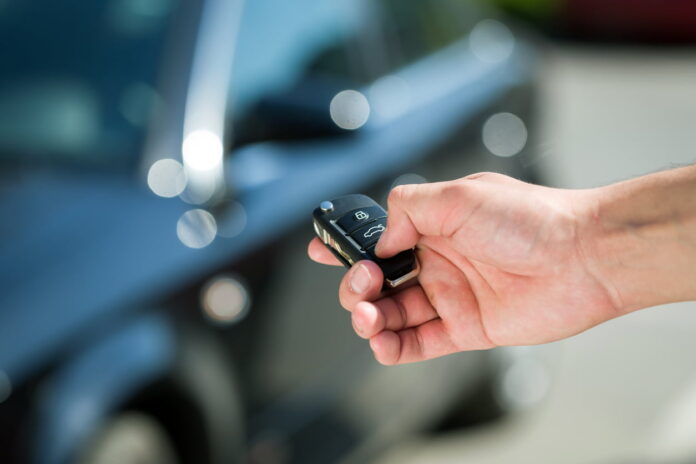Losing or breaking your car keys is one of those small disasters that can instantly ruin your day. If you’re in Exeter, an experienced auto locksmith can be the difference between hours of stress and a fast, professional resolution. This article explains what auto locksmiths do, how they can help when car keys are lost or broken, what to expect during a call-out, and how to choose the right locksmith — plus tips to reduce the chance of it happening again.
What an auto locksmith does — a quick overview
An auto locksmith is a specialist who works on vehicle locks and keys. Their services go well beyond cutting keys: they read and program electronic key systems, repair or replace ignitions, extract broken keys, and work with immobiliser and transponder systems found in modern cars. Unlike a general locksmith, an auto locksmith has specific tools and knowledge for vehicles — essential when keys are lost, broken, or when a car won’t start because of an immobiliser problem. For quick and dependable car key solutions, DB Car Keys stands out as a leading Auto Locksmith Exeter service.
Common situations where you’ll need an auto locksmith
- Lost keys — Whether you misplaced them at the supermarket or dropped them somewhere, if you don’t have a spare, an auto locksmith can create a replacement on site or at a workshop.
- Broken key in the lock or ignition — Keys snap, especially older or bent keys. Locksmiths can extract the broken piece safely and make a replacement.
- Damaged key fob or dead remote — If the battery is dead or the fob is physically damaged, locksmiths can repair, replace, or reprogram the fob.
- Locked out of your car — If the doors are locked and keys are inside, auto locksmiths use non-damaging entry techniques to get you back in.
- Key won’t turn in ignition — This can be caused by worn keys, a damaged ignition cylinder, or steering lock issues; an auto locksmith can diagnose and fix the fault.
- Transponder/chip key issues — Modern cars often have keys containing electronic chips that must be programmed to the car — locksmiths can program new keys so the engine will start.
- Spare key creation and security upgrades — Locksmiths can supply a spare key and advise about keyless-entry upgrades or secure key storage.
How an auto locksmith in Exeter will typically handle a lost-key call
- Identity and ownership check
Reputable locksmiths will ask for proof of ownership (e.g., V5C logbook, registration documents) and ID before making or programming a replacement key. This protects you and prevents fraudulent activity. - Initial diagnosis
The locksmith will ask questions: make, model, year of the vehicle, whether the lost key was electronic (fob/transponder) or a simple mechanical key, and what happened (lost, stolen, broken). This helps them bring the right equipment. - On-site or workshop work
Many locksmiths perform on-site services — they arrive with cutting and programming equipment and, if possible, make the key where the car is parked. For some complex cases (e.g., ignition replacement or certain manufacturer-specific programming), they may take the vehicle to a workshop or ask you to bring it there. - Key cutting and programming
If the vehicle uses a plain mechanical key, the locksmith will cut a replacement to the lock code or by impressioning the lock. For transponder/chip keys, they will cut the blade and then program the key so the car’s immobiliser recognizes it. - Testing and instruction
After making the key, the locksmith will test it — doors, remote functions, and starting the engine — and show you how to use any features (like remote locking) and how to care for the key.
What you should expect to provide
- Proof of ownership (V5C or similar) and photo ID.
- Vehicle information: registration number, make, model, and year.
- If available, tell the locksmith whether you have a spare key and where you think the lost key might be — that helps them advise whether replacing or reprogramming is needed.
Common technologies and terms explained
- Transponder key / chip key: Contains an electronic chip that sends a code to the car’s immobiliser. If the code doesn’t match, the engine won’t start.
- Key fob / remote: Controls remote locking/unlocking and sometimes immobiliser functions.
- Impressioning: Technique for creating a new mechanical key by making marks on a blank key inserted into the lock — useful when no key code or existing key is available.
- Programming: The process of syncing a new electronic key or fob to the vehicle’s onboard computer.
- Immobiliser: A security system that prevents the engine from starting without the correct key.
Typical costs and timeframes (what to expect)
Costs vary depending on the complexity:
- Simple mechanical key: Generally cheaper and quicker to replace.
- Transponder/chip keys and remote fobs: More expensive because they require programming equipment and sometimes manufacturer-specific codes.
- Ignition repairs or replacements: Higher cost due to parts and labour.
A straightforward on-site replacement can take from 20 minutes to an hour; programming modern smart keys or replacing an ignition can take longer. Exact prices differ between providers; a quick call to describe your vehicle will usually get a helpful quote.
Choosing the right auto locksmith in Exeter
- Check credentials: Look for membership in professional bodies (e.g., Master Locksmiths Association in the UK) or local trade associations.
- Read reviews: Online reviews and local recommendations are valuable. Look for consistent comments about reliability, pricing transparency, and workmanship.
- Ask about guarantees: A reputable locksmith should guarantee their work — especially programming and key function.
- Get a clear quote: Ask whether the quote includes call-out fees, parts, and VAT. Avoid vague estimates.
- Availability: If you need emergency help, check whether they offer 24/7 call-outs and approximate arrival times.
- Data protection: Because programming keys can involve vehicle security codes, choose a locksmith who respects privacy and verifies ownership properly.
Safety and legal considerations
- Locksmiths will check ownership to prevent keys being copied for stolen cars. This is standard and sensible.
- If your keys were stolen rather than lost, consider reporting it to the police and your insurance company. In some cases, insurers will cover key replacement or additional security work.
- After losing keys, you may want to change locks or have the car’s key codes changed (if possible) to prevent misuse. An auto locksmith can advise if this is necessary for your vehicle.
Preventing future problems — practical tips
- Keep a spare: Store a spare key in a safe place at home or with a trusted person.
- Key tracking: Consider a small Bluetooth tracker attached to your keys so you can locate them via a phone app.
- Protect your key fob: Waterproof covers and battery checks reduce the chance of failure.
- Regular key checks: Replace worn keys before they break; a slightly worn blade can snap inside a lock.
- Document storage: Keep vehicle documents handy (but secure) to speed up recovery or replacement.
FAQs
Q: Can a locksmith open my car without damaging it?
A: Yes. Professional auto locksmiths use non-damaging entry tools and techniques to avoid scratching or breaking locks.
Q: Do I always need to go to a dealership for a new key?
A: No. Many locksmiths can cut and program keys faster and cheaper than dealerships. However, some newer models may require dealer-only programming — a good locksmith will tell you this up front.
Q: Will the locksmith be able to make a key if I don’t have any keys left?
A: Yes. Skilled locksmiths can create keys from the lock (impressioning) or by using the vehicle’s key code if it’s available.
Final thoughts
Losing or breaking your car keys is stressful, but a qualified auto locksmith in Exeter can get you back on the road quickly and safely. They offer a mix of mechanical skill and electronic expertise that modern vehicles demand — from extracting a broken key to programming complex smart keys. When choosing a locksmith, prioritize credentials, reviews, clear quotes, and ownership verification. And once you’re sorted, take a few preventative steps — a spare key and a small tracking tag can save you from a repeat visit.

